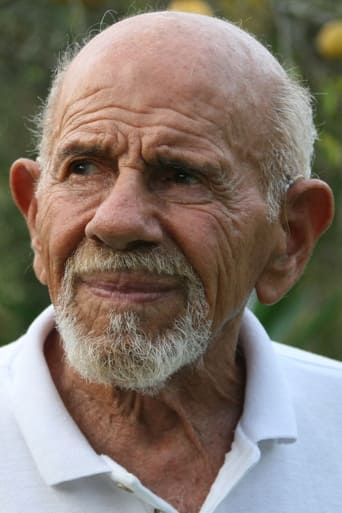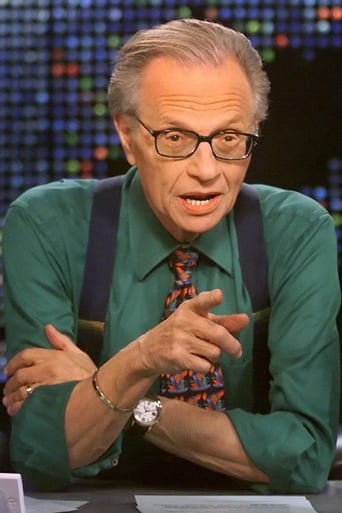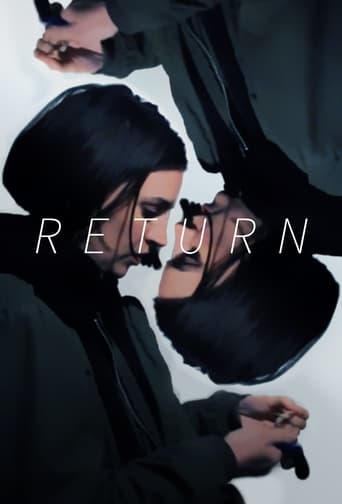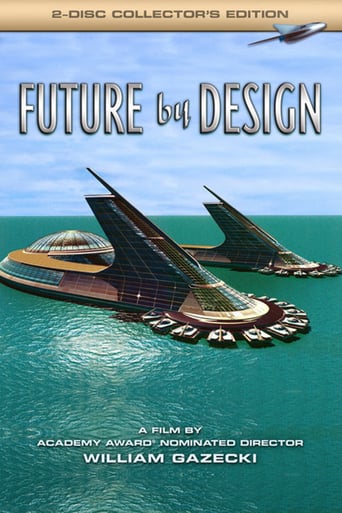
Future by Design shares the life and far-reaching vision of Jacque Fresco, considered by many to be a modern day Da Vinci. Peer to Einstein and Buckminster Fuller, Jacque is a self-taught futurist who describes himself most often as a "generalist" or multi-disciplinarian -- a student of many inter-related fields.
You May Also Like

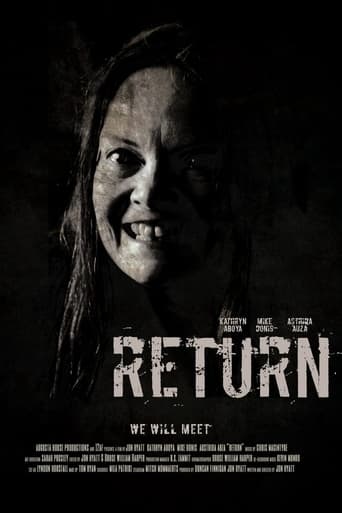


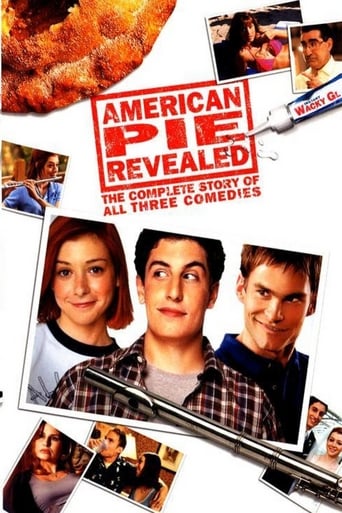
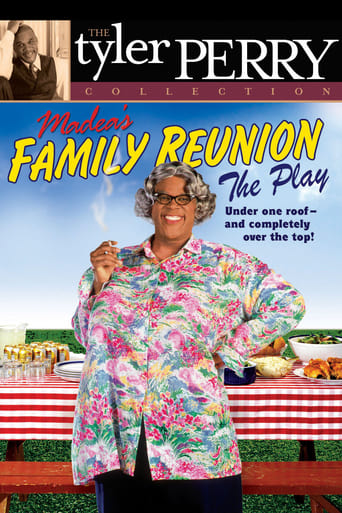

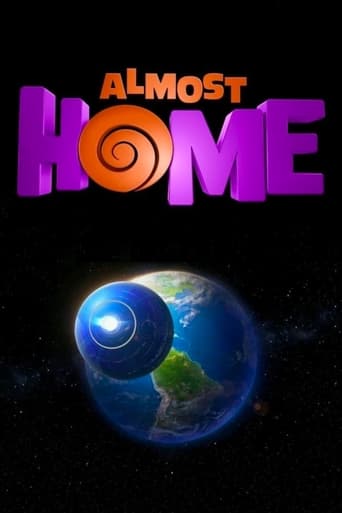

Reviews
Touches You
Simply A Masterpiece
This movie was so-so. It had it's moments, but wasn't the greatest.
The best films of this genre always show a path and provide a takeaway for being a better person.
This man is brilliant.But the film lacks the information that is in abundance (get it?!) in the Zeitgeist movies. I am amazed this film doesn't have the following it deserves. Truly wonderful ideas that would eliminate the social problems we have today. All of the ideas are that of a fantasist, but 90% of these ideas are technologically feasible now.Please watch this film, but if you have come here first, watch the above mentioned movies first, then this, and if you agree with the ideas and principles in all 4 films, spread the word.
This isn't as much a documentary feature as it is a propaganda vehicle for the lead character Jacque Fresco.From the outset we are presented with Jacque Fresco as the new Leonardo Da Vinci and receive no questioning as to Mr. Fresco's ideas. We aren't even treated to anything deeper about Mr. Fresco than superficial background information and the reason why he knows what he's talking about is that he has observed the world. For almost 1 and a half an hour Mr. Fresco speaks about society, environment, the monetary system and offering a utopian alternative.All of this is wonderful and Mr. Fresco do have some good ideas and thoughts. Unfortunately there is inherent contradictions in his train of thought.Fresco uses a lot of time in iterating how our current communications-form isn't viable. His proposed alternative is that of communicating scientifically. Because in science we only communicate factually and not in belief, in his opinion. This is funny because Fresco apparently do not understand that most science is build on belief in theory. Which becomes even funnier when most of what Fresco proposes is what HE believes in.Fresco isn't trained in anything apparently and we aren't even given much reason to believe in him other than he has looked at the world so he has a lot of "empirical evidence". For instance at one point he begins his lecture on society and anthropology. Fresco BELIEVES that the right environment will cure any animosity, anger and so on, in people. So with his system we effectively could remove prisons, wars and the likes from the world. He apparently do not factor into his calculations that humans aren't necessarily logical. And this is the problem with much of his reasoning. Most of his thoughts are just that and are not backed by practice.I don't know why this "documentary" has a director, because there really was no need. There are no interviews with anyone other than the main character and his indoctrinated assistant. So there are no counterpoints, no scrutiny, nothing objective and nothing which opens this "documentary" up for questioning.In all essence Jacque Fresco is apparently nothing more than a concept artist with some good ideas who, in this "documentary", is more along the lines of a "cult" leader whom always speaks the truth and are above questioning.
Director William Gazecki presents a 89 minute documentary on inventor/designer/futurist Jacque Fresco, who was in his late 80s/early 90s when the film was shot.I have deep problems with both the subject of the film, and the choices of the director in framing this story. Let's explore both.First to Fresco himself. He comes off as a 'poor man's Buckminster Fuller'. Both men seemingly dedicated their lives to technology, design, philosophy and ethics which would improve humanity. Both seemed to dream of a human future away from competitive world of scarcity, to a cooperative world of abundance.The difference between Fresco and Fuller (as far as I can tell from the film), is that Bucky Fuller seemed determined to prove his concepts by constructing real-life 'artefacts' to prove his ideas were viable. He built geodesic domes, the Dymaxion Car, the Dymaxion Map, all as physical proof of his theories. By contrast, Fresco seems to live in miniature land, spending his time building models of "what the future will look like". One's mind spins at the immense challenge of taking these models from theory to reality.Fresco talks like a guru, making 'definitive'-sounding statements about how the future will be. He says things like "jets will be propelled with ionized beams", or "robots will do all the dirty, repetitive and boring work". So what? I can make broad statements too. For example: "in the future, everyone will be happy and healthy." Easy, huh? However, just because someone says something, doesn't mean it is actually true or useful.This is where William Gazecki fails as director. The film feels like a promotional film for Jacque Fresco Industries, Inc. Complete with over-use of 3D modelling and a cheesy MIDI-like music soundtrack.How did Fresco amass a fortune which allows him to spent 365 days a year creating models? Gazecki's film does not reveal. As far as we know, his only commercial commission is a set of surgical instruments - a far cry from the buildings and transportation which he claims authority to speak on. Not being a Fresco expert, this is a failure of the director, who offers little insight into Fresco's body of work beyond the model collection within The Venus Project circa-2006.Gazecki allows one voice to dominate the film: that of Fresco himself. As such, the film feels like a sermon from Fresco, with the only alternative voice being that of his Venus Project assistant - hardly a person who is likely to dissent or challenge. No outsiders are interviewed throughout the documentary, and the film degrades into a one-sided 'Fresco on Fresco', set to increasingly bad music. It's no wonder he was so interested in submerged cities - it is clear that Fresco could talk underwater.These directorial failings could be excused for a film about a subject of trivial importance. Say, a documentary about a football player. But by failing to hold Jacque Fresco to scrutiny, William Gazecki opens a potentially dangerous situation where viewers could be charmed by the soothing tune of the pied piper. The guru could well turn out to be a fakir, who leads us disastrously off track. Specifically, no question is raised of the huge environmental impacts of mining and refining the metals needed for Fresco's grand structures, as well as their energy requirements in a post-Peak Oil world.The good points of the film? Well, the picture seemed to be in focus most of the time, and the audio and video were in sync. Also, I did not detect any spelling errors in the credits.If you are looking for a well-made alternative to Future By Design - one which actually offers insight into the documentary's subject, watch Sketches of Frank Gehry by director Sydney Pollack.
It's impossible not to like Jacque Fresco or to not be charmed by his enthusiasm. There's no doubt that he's a gifted stylist, immensely hardworking and sincere, and that he has synthesized most of the "futuristic" notions of the 20th century. You can see the influences of Bucky Fuller's geodesic structures, the streamlined vehicles of Norman Bel Geddes, Oscar Niemeier's curvilinear architecture. He's assembled a world-view that's appealing and might well be an improvement over what we have now. For that, he's something of a treasure.Having said all of that in his favor, even his newest creations are dated and, almost without exception, simply replace existing problems with other problems he does not seem to see. Countless examples present themselves in this documentary.For example, he posits "cities of the future" which are saddled with the problems that have always plagued utopian city planning, from Le Corbusier's "Ville Radieuse" to Niemeier's Brasilia. First, the resources, energy, tools, etc., required to create these cities is vastly greater than creating an organically-grown city. This is a mistake that Fresco repeats again and again. He posits huge "prefabricated buildings, assembled by robots". Instead of actually being a step forward, all this does is to shift the labor and energy from where it is now (construction crews building on-site) to construction crews building prefab modules elsewhere, and then requiring the energy to move them to the site, AND to create (and provide materials and energy for) the robots to assemble them. There is no net savings; indeed, there's a net LOSS in efficiency, all for the sake of "futuristic" prefab buildings and robot assemblers. Every "automated system" he suggests comes at a huge cost in materials, energy, manpower, etc.Second, people simply don't like living in symmetrical cities; they're soul-crushing. Every city ever been built upon a symmetrical plan has been a failure. Most have become housing projects, slums or demolished just decades-on. And it's far more difficult to demolish and ethically dispose of "futuristic" buildings than ones made of say, brick and wood. (Monsanto's fiberglass "House of the Future" defied nearly all attempts at demolition and even after being chopped up, became toxic landfill.) It's unlikely that anyone a century from now will bemoan the loss of the "grid city", but people will always feel attracted to chaotic jumbles like Bruges, Carcassonne or Carmel-by-the-Sea. Humans are organic and they just naturally relate to organically-evolved settings.Third, the inflexibility of planned cities is antithetical to growth and change; two things that every city needs. Fresco says that the central hub of the city will house all of the shopping facilities. With that limitation of space, a finite number of businesses can be accommodated. Which ones will be allowed there? How can they grow as they succeed? Cities aren't closed systems; they need to be flexible.Two huge failings of Mr. Fresco's vision are those of energy demands and of materials. He speaks of aircraft that will operate by electrostatic power (something he explains by the wrong-headed analogy of squeezing a peach pit between your fingers to shoot the pit across the room. Sorry but the air cannot produce pressure against two opposite sides of an aircraft to squeeze it along). The fact is that, barring many magnitude-orders of technological advancement, "electrostatically-powered aircraft" are about as sensible as nuclear-powered autogyros. He touts a variation of the trusty "futuristic monorail", not acknowledging that monorail beamways are FAR more expensive and difficult to build and repair than traditional railway lines, and are extremely inflexible for growth or change.Likewise, he never mentions what "futuristic" material his ambitious building projects will use. To make a large building shaped like a potato chip requires a material that can be formed in complex curves. What to use? Fiber-reinforced resin? The Futuro houses of the '60s used that; they're a nightmare of maintenance and repair (or disposal). Ditto concrete sprayed over forms. And integrating doors and windows into complex-curved structures is problematic (ask anyone who has built a geodesic dome). Metal alloys are hugely expensive. The amount of aluminum required to build a million new homes would increase the unit cost many times, and there's not enough aluminum ore on the planet to build 100 million such homes.His "car of the future", with its "self-repairing body", covered with photovoltaic skin and equipped with radar and computer to prevent collisions, is a nightmare of complexity, materials and energy cost, and repair and disposal challenges. All of that technology just so drivers can pay less attention to driving? One could learn something from proponents of "appropriate technology" who might instead suggest building bicycles enveloped in bamboo and fabric streamlining. Of course, they're not "futuristic" looking, but in their favor, they can be built at home by most reasonably handy people out of cheap materials that can easily be repaired and recycled.It's not enough to come up with an appealing form that looks sleek and desirable; a designer must also understand materials and their limitations. Does Mr. Fresco? If so, he never touches on it; he just trots out one epically ambitious structure or vehicle after another, as if the shape will overcome the challenges of materials, construction, economy, repair or disposal.One thing I wholeheartedly agree with Mr. Fresco about is an hour into the film where he very cogently explains why humans create superstitions, and how they hold us back. Bravo to him for that, and for challenging our species to do better than we have thus far. But all of the ambition in the world, unless coupled with a good understanding of what it takes to make dreams reality, is little more than window-dressing. Mr. Fresco dresses a window beautifully, but brings us no closer to the future. Still, the film is highly recommended for retro-futurists and dreamers. And in an ideal world, he would have every resource needed to build those dreams.
Top Streaming Movies













